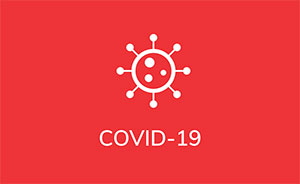In the past three years since SARS-CoV-2 has been active, patients with compromised or suppressed immune systems have worried, wondered, and waited for an answer to the one big question -will treatment or immunizations work for me?
Chronic lymphocytic leukemia is the most common leukemia in adults, with a frequency of between < 1 and 5.5 per 100,000 people. This means that, while approximately one-quarter of the people who get leukemia get CLL, it is relatively rare. The first practical issue is that CLL patients are spread across countries, making gathering a large group to participate in a study somewhat difficult. The second practical issue is that, with the initial quarantining, social distancing, and limited outside contact, any gathering of people was not encouraged. The third practical issue is that no robust study that requires individuals to be infected with the virus is ethical. Finally, and certainly not least, the potential for death as an outcome tends to limit volunteers.
As a result, studies of immunocompromised patients were quite rare. Vaccinations have changed that landscape for the better but have raised additional issues. Are immunocompromised people capable of creating an adequate response to the vaccination? Since these vaccines elicit both a T cell and B cell response, what tests are needed? While it is clear that patients using anti-CD20 monoclonal antibodies and/or other therapies have a more significant immune suppression than treatment naïve patients, studies need to be done on all subgroups.
This study showed that 61% of patients did develop some level of antibodies. Over 70% of patients who were treatment naïve were positive for antibodies, while it dropped to 57% of patients taking BTK inhibitors. Unfortunately, the four patients taking either venetoclax or anti-CD20 monoclonal failed to have antibody response, but that number, while concerning, is too small to confer any definite significance. Cellular responses were impaired but could be seen in the absence of an antibody response.
In summary, as other studies have shown, vaccines can be helpful for many CLL / SLL patients but not reliably for all. Therefore, the best course is to get vaccinated and boosted, but still, do all the other measures to lower the risk of contracting COVID-19.
You can find the ASH abstract at Humoral and Cellular Immunogenicity of COVID-19 Vaccinations in Patients with CLL
Please enjoy this interview between Dr. Sameer Parikh and Dr. Clare Sun:
By Susan Leclair, Ph.D., CLS (NCA) is Chancellor Professor Emerita at the University of Massachusetts Dartmouth; Senior Scientist at Forensic DNA Associates; and Moderator and Speaker, PatientPower.info – an electronic resource for patients and health care providers.

